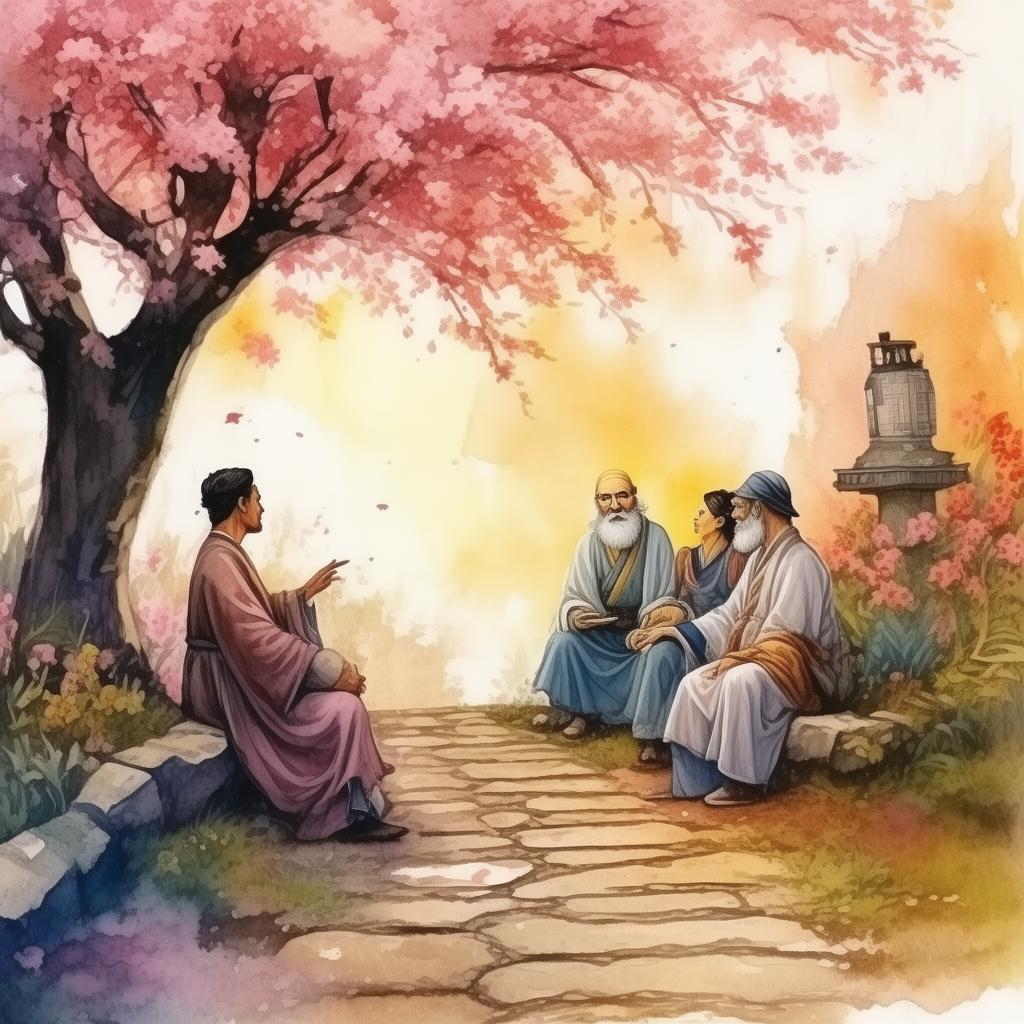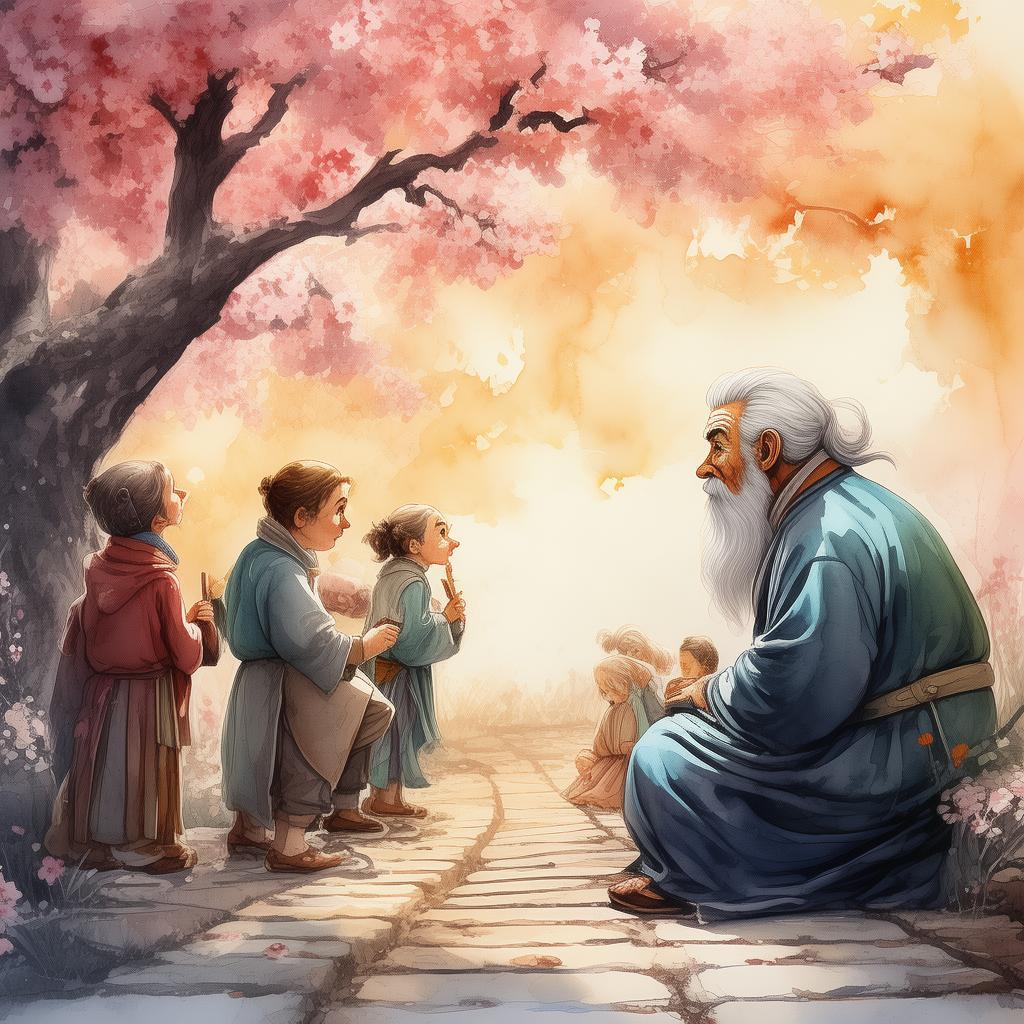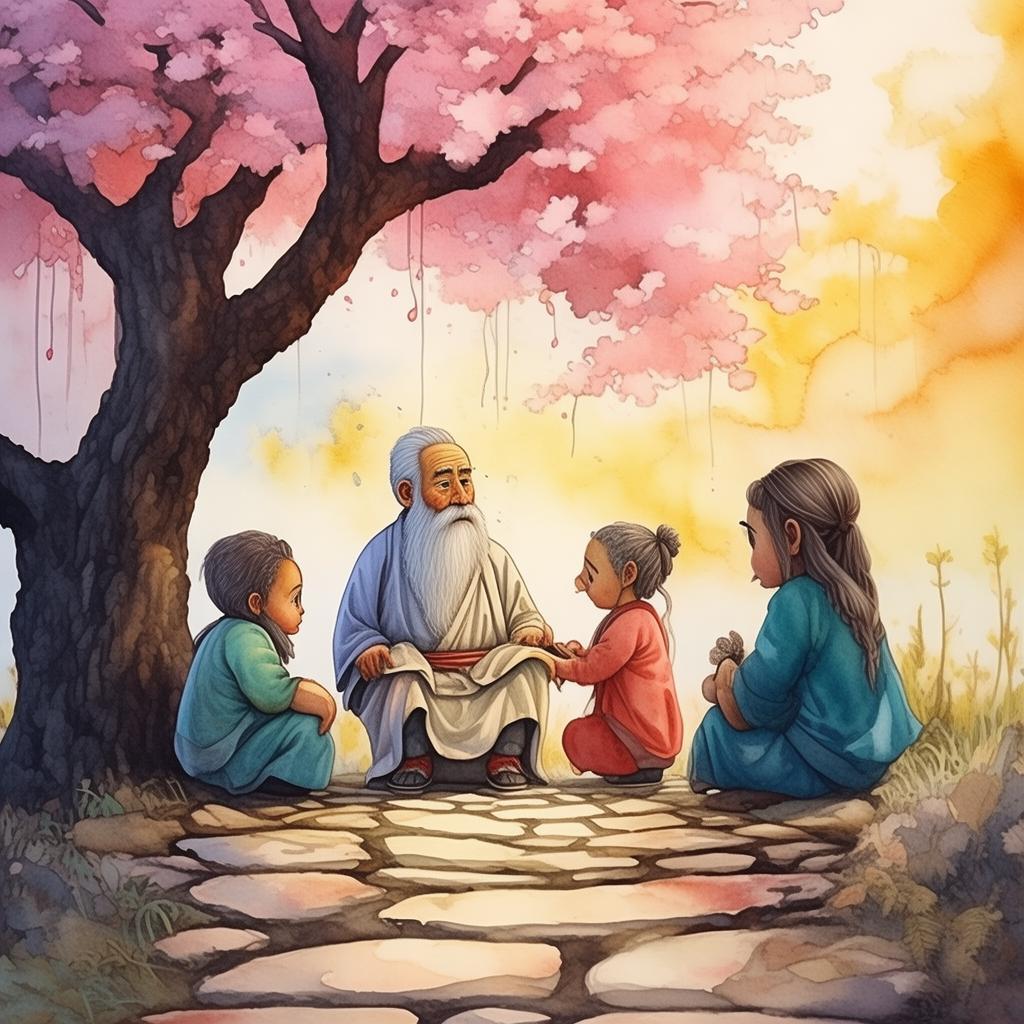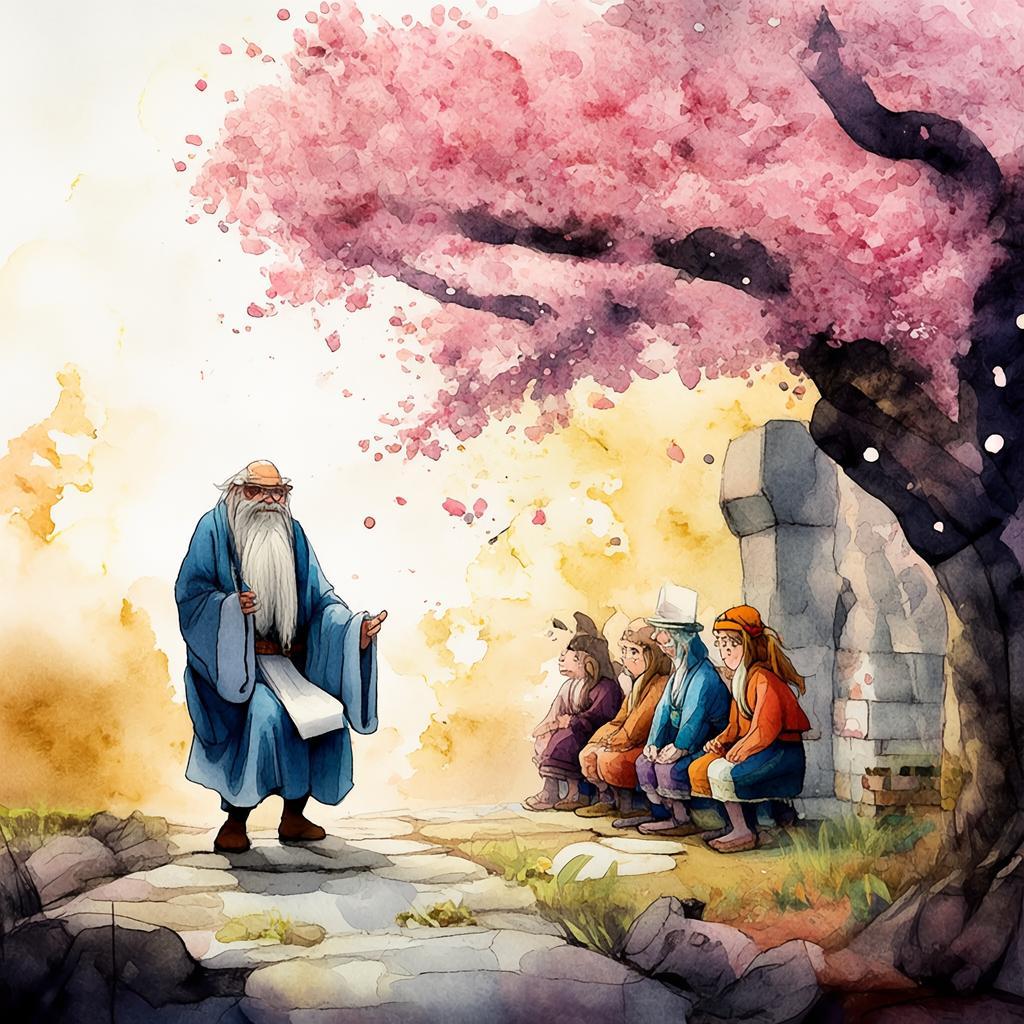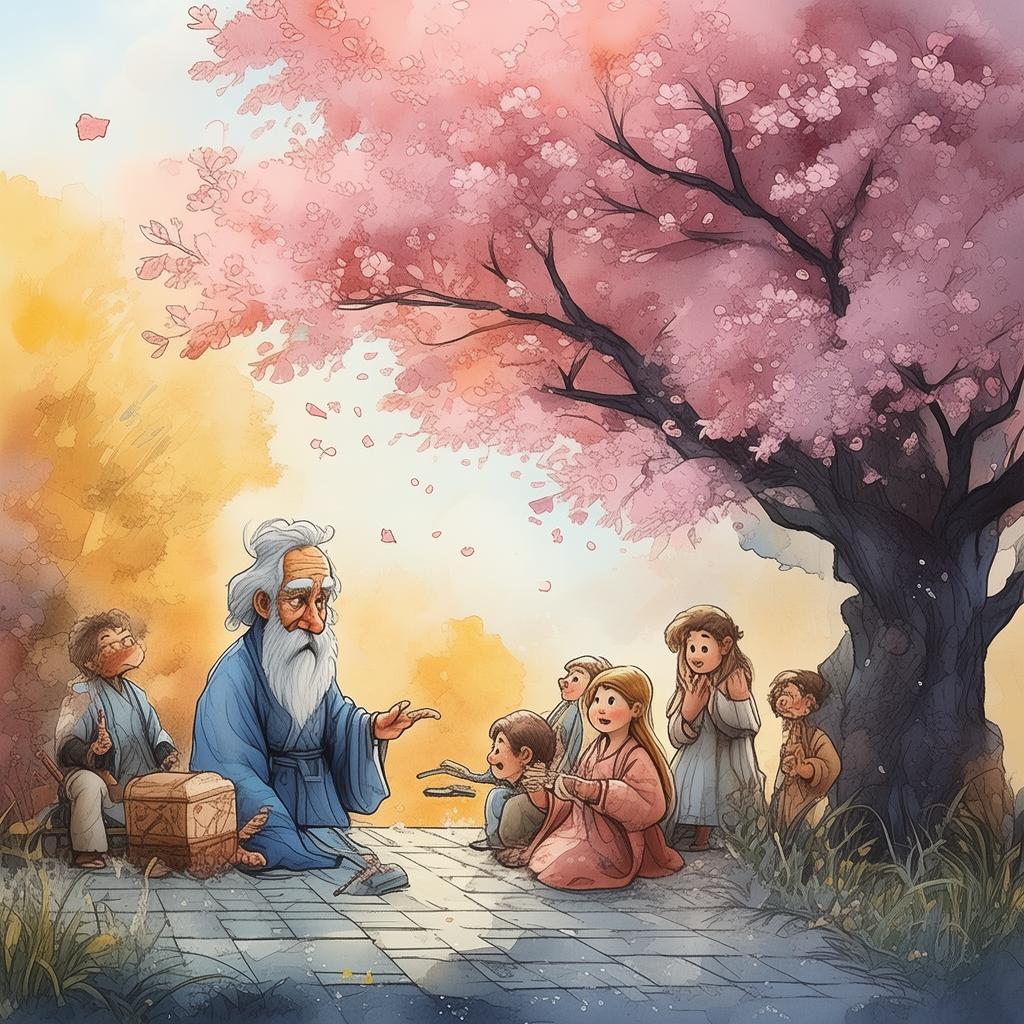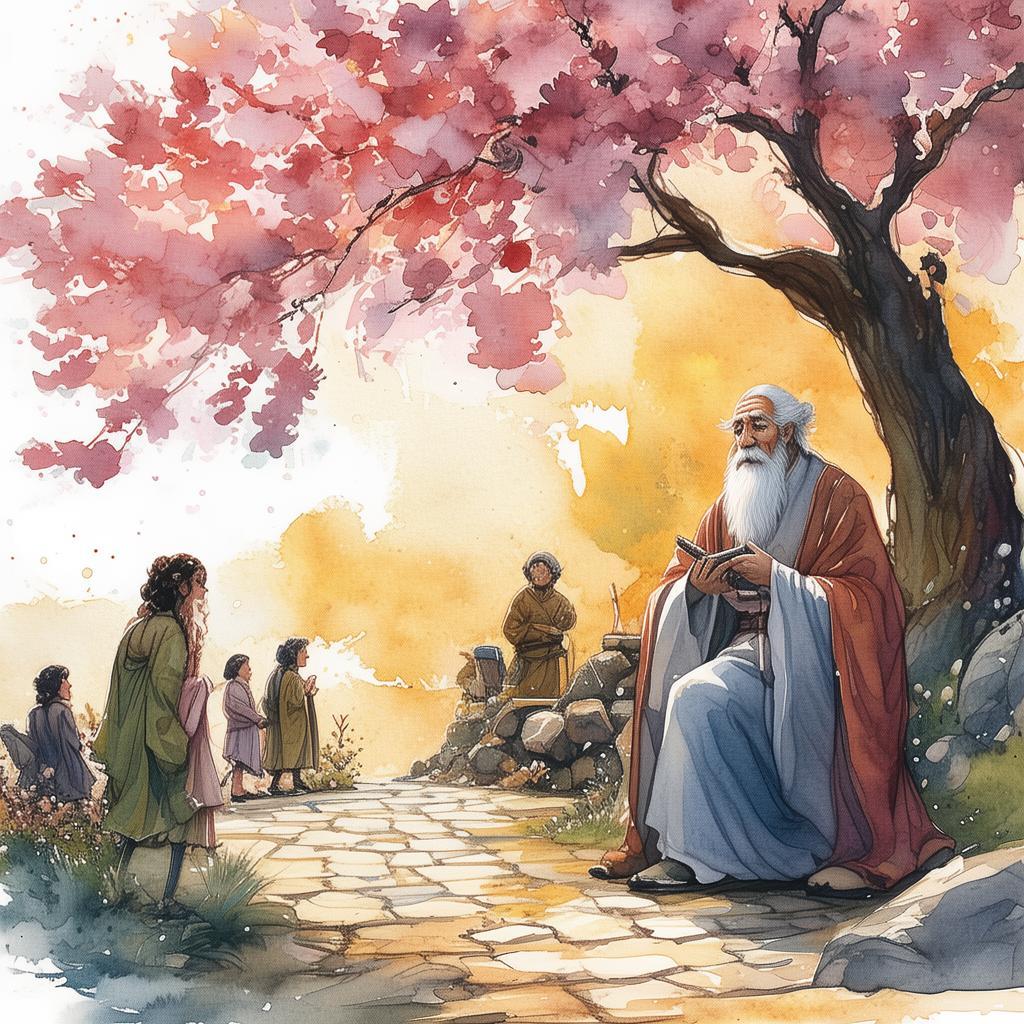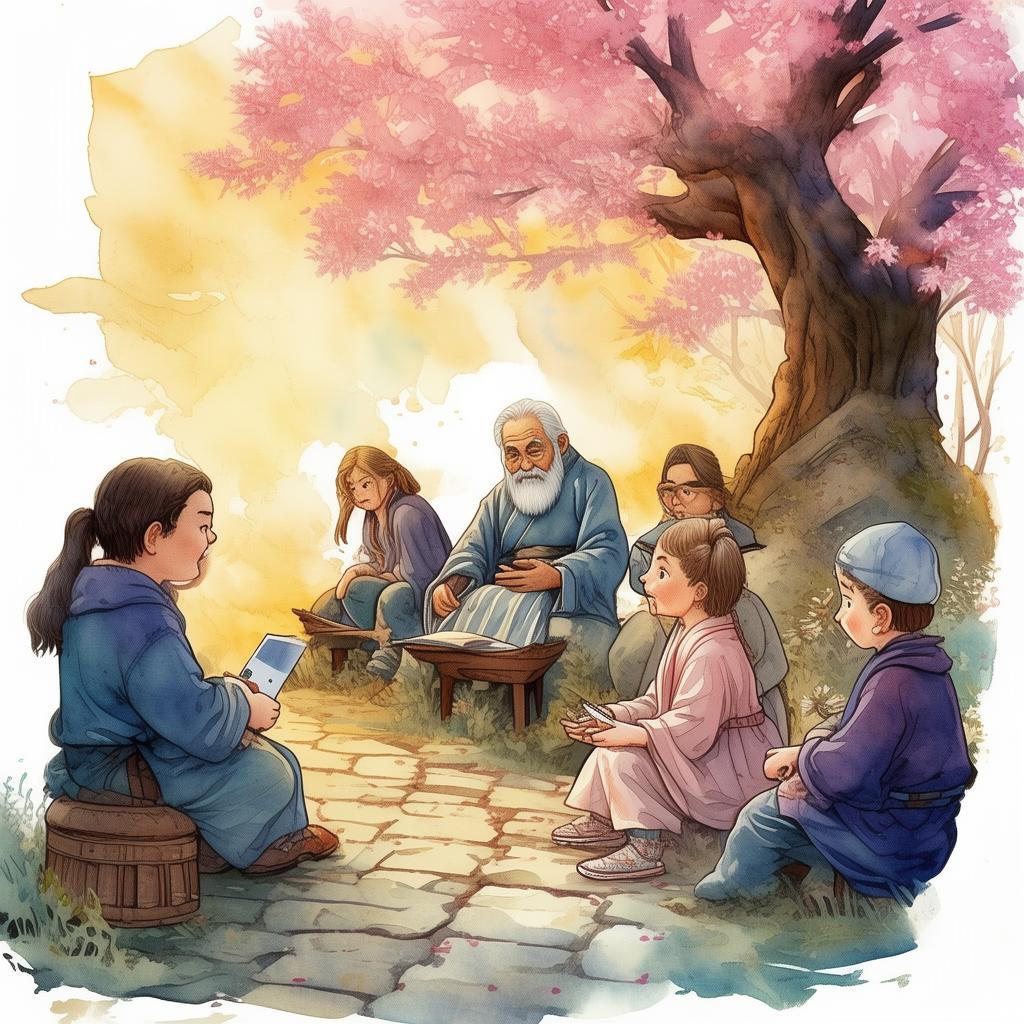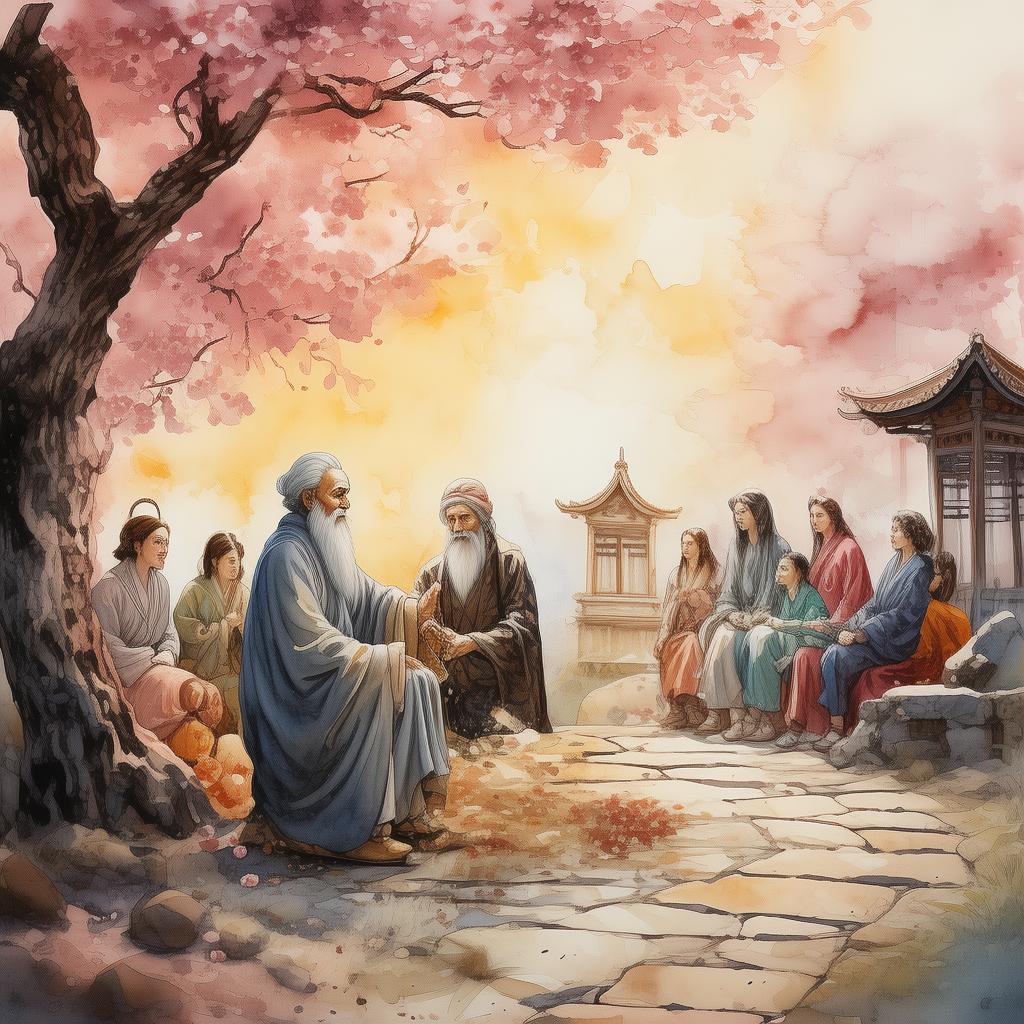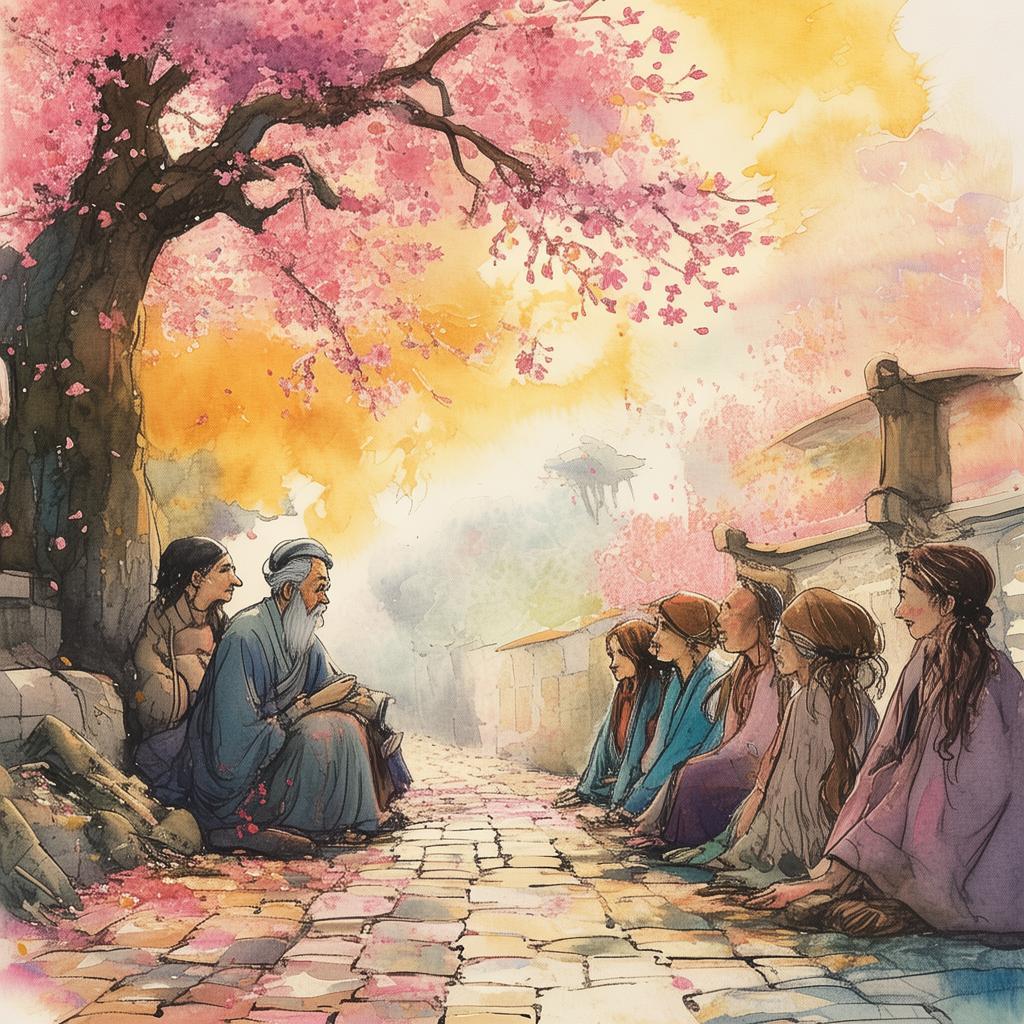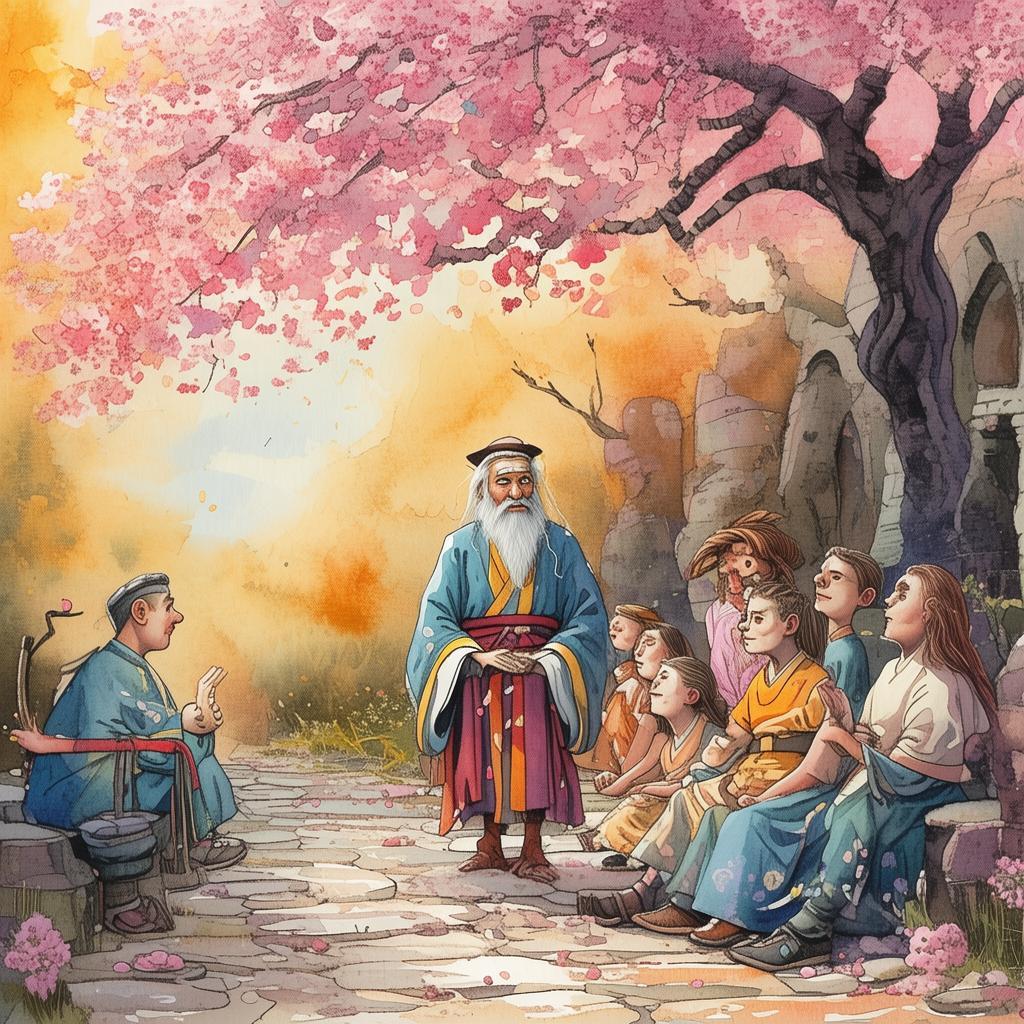The Critic's Gaze: A Stare Through the Veil
In the ancient city of Jingzhou, nestled between the towering mountains and the flowing Yangtze River, there lived a young critic named Zhi. Zhi was known for his sharp wit and keen eye for detail, often unearthing the hidden truths in the most mundane tales. His reputation spread far and wide, and soon he was sought after by the wealthy and the powerful to uncover the truths hidden within their stories.
One day, Zhi was approached by a mysterious figure cloaked in shadows. The figure spoke in a voice that seemed to resonate with the very essence of the city's ancient history. "Zhi, the critic," the voice intoned, "there is a story that has been passed down through generations, a tale of a village shrouded in mystery. The people of this village, the Hu village, have a secret that has remained hidden for centuries. It is a story that has the power to change the world, and I seek your help to uncover it."
Intrigued by the challenge, Zhi agreed to follow the figure to the Hu village, hidden deep within the mountains. The journey was arduous, and as they climbed higher, the air grew colder, and the trees became more ancient and twisted. The village itself was a labyrinth of stone paths and wooden houses, and the villagers appeared to be living in a time long past.
Upon their arrival, Zhi was greeted by the village elder, an ancient figure with eyes that seemed to pierce through the very soul of the critic. "Welcome, Zhi," the elder said, his voice as deep as the mountains surrounding them. "The secret of Hu village is a story of love and betrayal, of hidden truths and the cost of silence. It is a story that has been whispered among us for generations, but only now, with your arrival, can it be told."
The elder then began to recount the tale, a story of a young woman named Ying, whose beauty was said to be so radiant that it could blind the stars. Ying was betrothed to a young man named Ming, a farmer of the village. But Ying's heart belonged to another, a wandering artist named Qing, whose art was as powerful as his love for Ying.
As the tale unfolded, it became clear that the love triangle was not the only mystery at play. The villagers had long been haunted by strange occurrences, whispers in the night, and shadows that seemed to move on their own. The elder revealed that these occurrences were not merely the work of the supernatural but were instead the manifestation of the villagers' own fears and secrets.
The true secret of Hu village was that the villagers had built a wall of silence around their village, a barrier that kept the truth of Ying and Qing's forbidden love hidden from the outside world. But this silence had come at a great cost, as the villagers' own spirits had become entangled with the shadows of their past, and the village itself was slowly being consumed by the darkness.
Zhi, torn between his duty to uncover the truth and the moral dilemma of breaking the villagers' silence, found himself in a profound struggle. He realized that the story of Ying and Qing was not just a tale of love and betrayal but a reflection of the village's collective soul. To uncover the truth would mean to expose the villagers to the pain of their own secrets, and to silence the whispers that haunted them.
In a moment of profound clarity, Zhi decided that the true power of his criticism lay not in uncovering hidden truths but in helping others to face their own truths. He approached the elder and proposed a different course of action. "Instead of breaking the silence, let us help the villagers to confront their fears and secrets, to heal their wounds through understanding and forgiveness."
The elder nodded in agreement, and together, Zhi and the villagers began the long journey of healing. They spoke openly about their fears and secrets, and slowly, the shadows that had haunted them began to fade. The villagers learned to accept the past and to move forward, and the wall of silence that had once protected them was replaced by a community of open hearts and shared stories.
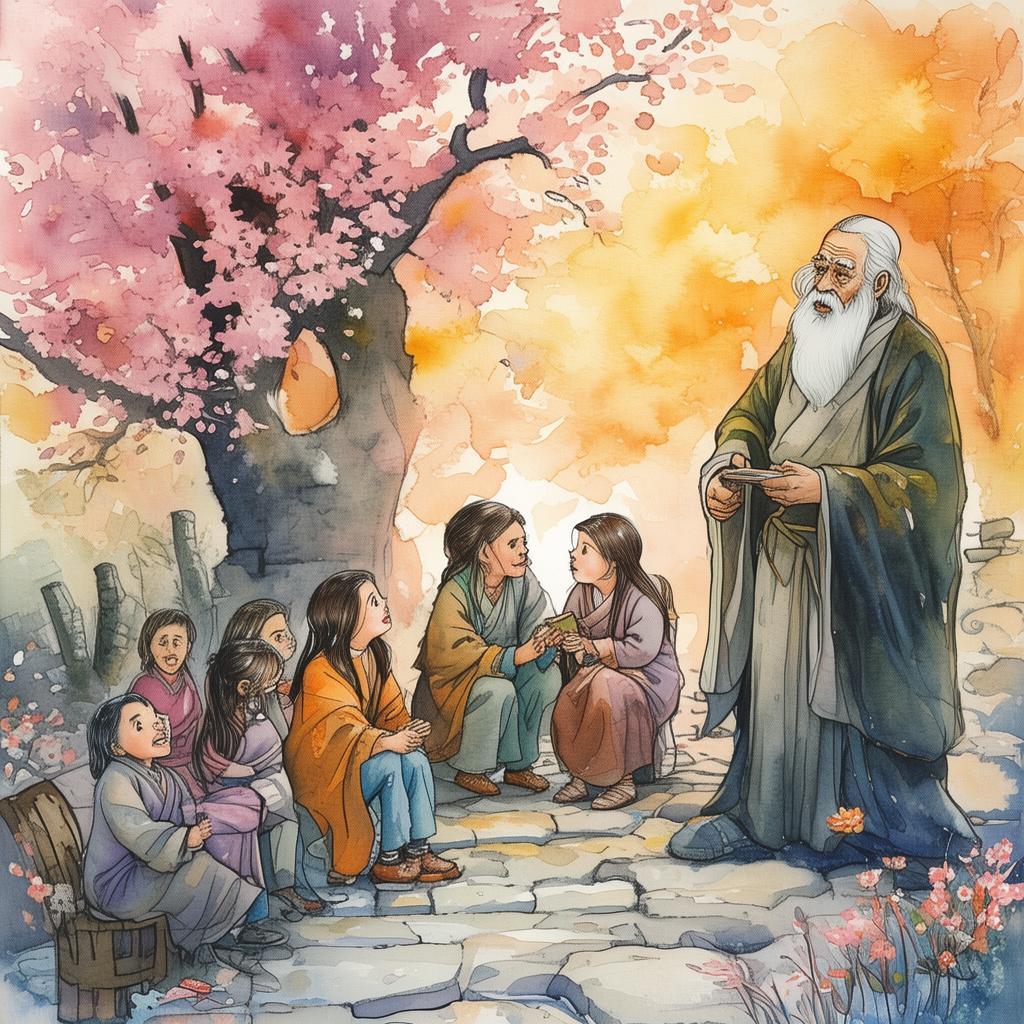
As the final act of healing, Zhi and the elder organized a grand festival, a celebration of the villagers' newfound unity and strength. The villagers invited the entire region to join them, and as the music played and the laughter echoed through the mountains, it was clear that the spirit of Hu village had been reborn.
Zhi, now a wiser and more compassionate critic, returned to Jingzhou, his heart full of the lessons he had learned. He realized that the true power of storytelling was not in revealing hidden truths but in the journey of understanding and healing that it could inspire.
The story of the Hu village, with its moral dilemma and the power of community, became a legend in its own right, a tale that would be told for generations to come. And Zhi, the critic who had once sought to uncover the truth, had found a new purpose in helping others to confront and overcome their own hidden truths.
✨ Original Statement ✨
All articles published on this website (including but not limited to text, images, videos, and other content) are original or authorized for reposting and are protected by relevant laws. Without the explicit written permission of this website, no individual or organization may copy, modify, repost, or use the content for commercial purposes.
If you need to quote or cooperate, please contact this site for authorization. We reserve the right to pursue legal responsibility for any unauthorized use.
Hereby declared.
